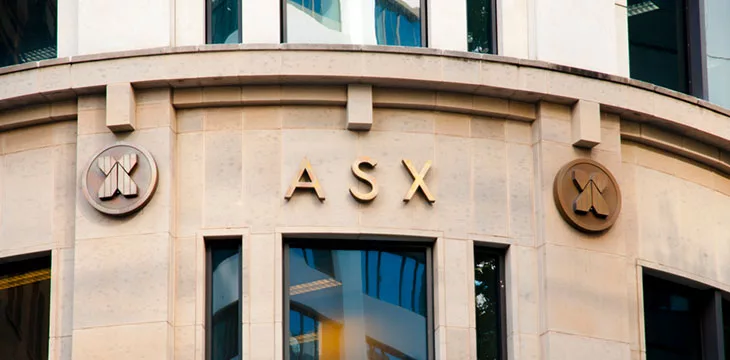|
Getting your Trinity Audio player ready...
|
One of the world’s most prominent blockchain implementations is officially winding down after eight rocky years. The Australian Securities Exchange (ASX) recently revealed that it’s officially giving up on its attempt to replace its trade and settlement system with a blockchain-based network.
ASX has been relying on the Clearing House Electronic Subregister System (CHESS) since its launch in 1994. In 2016, it enlisted American startup Digital Asset Holdings to build a blockchain replacement for CHESS. After delays and postponements for years, the bourse announced last year that its blockchain project had failed to meet expectations. In its most recent meeting, the exchange has officially scrapped the project.
ASX project director Tim Whiteley confirmed the move in a recent meeting. The executive stated that the upgrade on CHESS would leverage traditional technology.
“…while we continue to explore all the options, certainly, we will need to use a more conventional technology than in the original solution in order to achieve the business outcomes,” he said.
Whiteley added that the ASX would settle on a new strategy before the year ends. It has reportedly sent a request for information to several potential software vendors as it explores its options.
ASX says participants’ feedback “has been taken into the implementation planning” as it explores its options. Most participants have said they don’t want a risky, single-date changeover to a new software solution, Whiteley said.
Whiteley put to rest any claims that ASX could revive the blockchain project in the future. It would have been one of the highest-profile blockchain projects, with the ASX being Australia’s largest stock exchange. It lists over 2,200 firms with a combined market capitalization of $2.5 trillion.
What went so wrong for ASX?
When ASX announced its blockchain project eight years ago, it was seen as the biggest stamp of approval for the technology in the enterprise world at the time. The exchange enlisted New York startup Digital Asset Holdings to build the platform, then led by former JPMorgan (NASDAQ: JPM) executive Blythe Masters. ASX took up a 5% ownership stake in the company.
Eyebrows were raised at the time over the exchange’s decision to rely on a little-known startup on such a massive project. In an interview last December, co-founder Yuval Rooz admitted that the startup was punching above its weight.
“The CHESS replacements is extremely ambitious and was a very large project to take on for a company of our size in 2017,” he told Euromoney.
When ASX embarked on the project, it was under the leadership of CEO Elmer Funke Kupper. His successor, Dominic Stevens, pressed on and even increased the ownership stake in Digital Asset to 8.5%. By the time he left in February last year, over 300 people (a third of ASX’s workforce) were working on the project in some capacity.
It was Stevens’ successor, Helen Lofthouse, who first questioned the project and enlisted Accenture (NASDAQ: ACN) to audit the project. The consulting firm revealed that only 63% of the project had been completed seven years later.
Digital Asset’s Rooz says that part of the blame goes to ASX for its “lift and shift” approach. This refers to the idea of moving a system to a different platform without any fundamental redesigns. He says the two partners should also have focused on developing a minimum viable product and taking it to the market first.
The failure of the blockchain project has been widely criticized. Market participants say that ASX should compensate them for the millions of dollars they invested in preparing their systems for the new blockchain implementation. The failure led to a parliamentary inquiry and called for the board to step down.
Blockchain is an extremely beneficial tool in building applications and services; however, the complexity of the technology, specifically for individuals, groups, and businesses with surface-level knowledge of the matter, makes utilizing it a challenge. Different blockchains offer many use cases, depending on how a certain business would want to leverage its potential.
Catch the London Blockchain Conference from May 31 to June 2 at the Queen Elizabeth II Centre to learn more about blockchains and their use cases. Tickets for the physical event or virtual attendance are available here.

 02-16-2026
02-16-2026 




